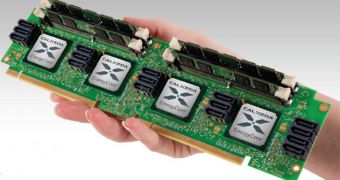In order to keep pressing its advance on the PC and server market, ARM is always on the hunt for new technologies usable in microprocessor design. Most recently, the company became a member of Bridge Crossing LLC, a consortium of major technology companies affiliated with Allied Security Trust.
Some time ago, Allied Security Trust entered an agreement with MIPS to obtain rights to its patent portfolio.
580 in number, the patents deal with microprocessor design, system-on-chip design and related technology fields.
The consortium, as a whole, will need to pay MIPS $350 million, which corresponds to 273 million Euro. Of those, ARM itself will have to cover $167.5 million, or 130 million Euro, give or take.
"ARM is a leading participant in this consortium which presents an opportunity for companies to neutralize any potential infringement risk from these patents in the further development of advanced embedded technology," said Warren East, CEO, ARM.
"Litigation is expensive and time-consuming and, in this case, a collective approach with other major industry players was the best way to remove that risk."
Obviously, as ARM continues to court laptop and server makers, it can step on the toes of those who already own patents for what it wants to accomplish. This alliance is a cost-effective way of ensuring protection from most potential naysayers.
Even more interesting is how ARM is playing the exact same game. While it does make certain processors, it licenses its architecture to other companies as well.
Qualcomm, Samsung, NVIDIA and others all use ARM chips. NVIDIA itself has its Tegra SoC series and, more recently, Tesla GPU accelerators. Even AMD said it would start making ARM chips.
The next big step forward will be 64-bit capable CPUs. The architecture already exists, ARMv8, but the first processors will only become available in 2014. That leaves a bit over one year for the company to gather more patents and resources, perhaps even x86 technology.
On that note, we've seen people on the net wishing ARM bought VIA, despite there being absolutely no indication that there are plans to that effect.

 14 DAY TRIAL //
14 DAY TRIAL //